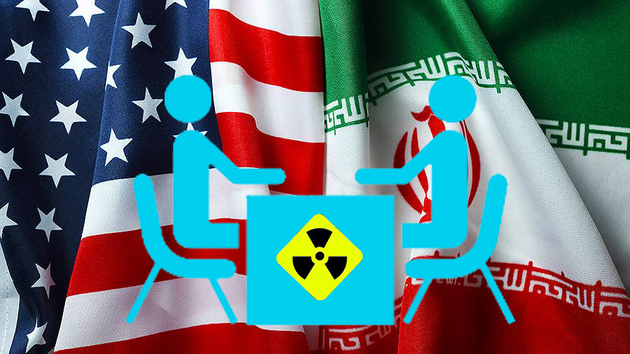U.S. and European efforts to coax Iran back into nuclear negotiations as soon as this month are being blunted by support the Islamic Republic’s already emboldened leaders are receiving from China and Russia. Bloomberg reports, the result is that three years after former President Donald Trump imposed his “maximum pressure” policy, Iran has enriched uranium close to weapons grade while its economy is showing some signs of stabilizing with the help of Beijing and Moscow, even as crucial oil exports remain heavily sanctioned.
Diplomats and analysts suggest the developments are creating space for Iran’s new government to expand the list of concessions it wants from Washington to return to compliance with the 2015 agreement struck with world powers. Doing so could push the talks into next year, topple the process entirely, or lead to fresh turmoil in the Middle East.
Iran’s negotiators see U.S. sanctions yielding “diminishing returns” and they’re likely to demand relief that goes beyond the nuclear penalties imposed by Trump, said Ali Vaez at the International Crisis Group, the Brussels-based research institute formerly led by top U.S. Iran envoy Rob Malley.
In order to complicate any return to the deal, which had curbed Iran’s nuclear program in return for sanctions relief, the Trump administration loaded on a raft of sanctions billed as responding to human-rights abuses and the funding of designated terrorist groups.
While no formal date has been set for a seventh round of negotiations aimed at reviving the deal, talks are expected on the sidelines of the International Atomic Energy Agency’s general conference convening the week of Sept. 21 in Vienna, according to two officials who asked not to be identified in line with diplomatic rules.
Washington says that while it’s “ready to compromise” on some issues, its negotiators won’t wait forever and Iran’s nuclear program needs to be rolled back within limits.
IAEA Director General Rafael Mariano Grossi, meanwhile, is seeking a meeting with Iran’s new nuclear chief, Mohammad Eslami, prior to the Vienna conference. He wants to gauge Tehran’s willingness to restore expanded access for the agency’s monitors -- terminated to protest U.S. sanctions -- and cooperate with international investigators, the two officials said.
Both Chinese President Xi Jinping and Russian leader Vladimir Putin spoke with Iran’s newly elected hardline President Ebrahim Raisi last month about the nuclear accord. China and Russia are both signatories to the 2015 deal and have stated their desire for both sides to return to its terms. But Xi has said his country supports Iran’s legitimate concerns over the agreement and pledged the continued financial support of the world’s second-biggest economy.
The results are visible on the ground in Iran. Its production of steel grew at a higher rate than China’s through July and made Iran the world’s 10th biggest producer of the metal, according to the most recent numbers published by the World Steel Association. Construction of new ports and railroads engineered with Chinese help have continued. In August, Iran announced plans for a new Caspian Sea natural-gas hub. On Thursday, a senior representative from China National Petroleum Corp. was in Tehran to discuss joint projects and expand ties.
On the diplomatic front, Russian Foreign Minister Sergei Lavrov was in Vienna last week to meet with the IAEA’s Grossi. While Moscow has made clear it expects Iran to resume allowing expanded inspections, it hasn’t shown any appetite for mounting new pressure on Iran.
China has similarly warned IAEA monitors against overstepping their monitoring roles in support of U.S. and EU objectives.
EU diplomats are awaiting the outcome of consultations between the IAEA and Iran before deciding whether to draft a resolution censuring Iran for its lack of cooperation, according to the officials who spoke with Bloomberg in Vienna.
While such a document could eventually lead to Iran again being referred to the UN, they said Tehran is unlikely to face additional Security Council action because China and Russia would almost certainly block an attempt to impose new sanctions.
“Europe has faced an almost impossible dilemma following the imposition of the U.S. maximum pressure policy,” said Tarja Cronberg, a fellow at the Stockholm International Peace Research Institute who worked on the Iran nuclear issue formerly as an EU parliamentarian. “Europe has lost its credibility for Iran and it is turning east toward China.”






